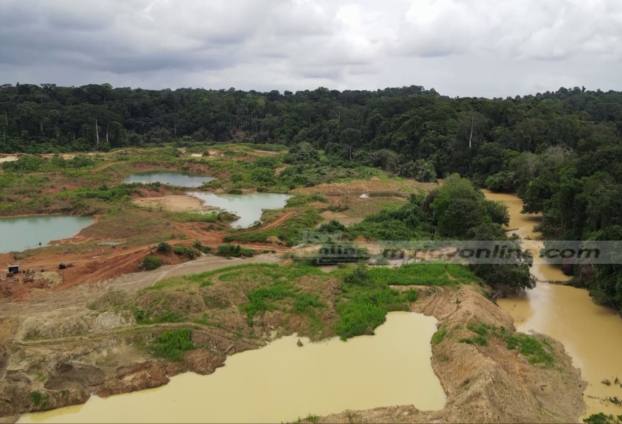The Christian Council of Ghana has joined the growing calls for a complete and decisive ban on illegal mining activities, commonly known as “galamsey.”
The Council’s call comes in response to the devastating environmental and social impacts caused by the illegal practice, which have become a pressing concern for many stakeholders nationwide.
At the forefront of this appeal is the General Secretary of the Christian Council, Reverend Cyril Fayose, who emphasised the existential threat posed by galamsey to Ghana’s natural resources.
He particularly pointed to the severe damage inflicted on water bodies, farmlands, and ecosystems, warning that the nation’s future is at stake if immediate action is not taken.
Reverend Fayose stressed the urgency of the situation, describing the ongoing destruction as a crisis that demands swift and decisive intervention.
He noted that illegal mining has escalated to a level where it threatens not only the environment but also the livelihoods of many local communities that depend on these natural resources.
In his remarks, Reverend Fayose called for more than just the usual condemnations and reactive measures that have been the norm in the fight against galamsey.
He argued that these efforts have proven insufficient and that only a comprehensive and well-structured strategy can effectively tackle the menace.
The Christian Council’s plea aligns with growing demands for a long-term solution to the illegal mining problem, urging authorities to adopt policies that will not only eradicate the practice but also restore and protect Ghana’s natural environment for future generations.
“I think there should be a total ban, at least if not a total ban, a moratorium for some time [on galamsey] so that we sit back and think about how to proceed. There are two ways to proceed."
“One is a total ban on small-scale mining so that no one is allowed to do small-scale mining, just as we don’t allow anyone to mine in water bodies. But the other thing is if we cannot do a total ban on small-scale mining, at least the small-scale mining companies must be community-owned.”
Latest Stories
-
Akufo-Addo condemns post-election violence, blames NDC
4 minutes -
DAMC, Free Food Company, to distribute 10,000 packs of food to street kids
1 hour -
Kwame Boafo Akuffo: Court ruling on re-collation flawed
2 hours -
Samuel Yaw Adusei: The strategist behind NDC’s electoral security in Ashanti region
2 hours -
I’m confident posterity will judge my performance well – Akufo-Addo
2 hours -
Syria’s minorities seek security as country charts new future
3 hours -
Prof. Nana Aba Appiah Amfo re-appointed as Vice-Chancellor of the University of Ghana
3 hours -
German police probe market attack security and warnings
3 hours -
Grief and anger in Magdeburg after Christmas market attack
3 hours -
Baltasar Coin becomes first Ghanaian meme coin to hit DEX Screener at $100K market cap
4 hours -
EC blames re-collation of disputed results on widespread lawlessness by party supporters
4 hours -
Top 20 Ghanaian songs released in 2024
4 hours -
Beating Messi’s Inter Miami to MLS Cup feels amazing – Joseph Paintsil
4 hours -
NDC administration will reverse all ‘last-minute’ gov’t employee promotions – Asiedu Nketiah
5 hours -
Kudus sights ‘authority and kingship’ for elephant stool celebration
5 hours

